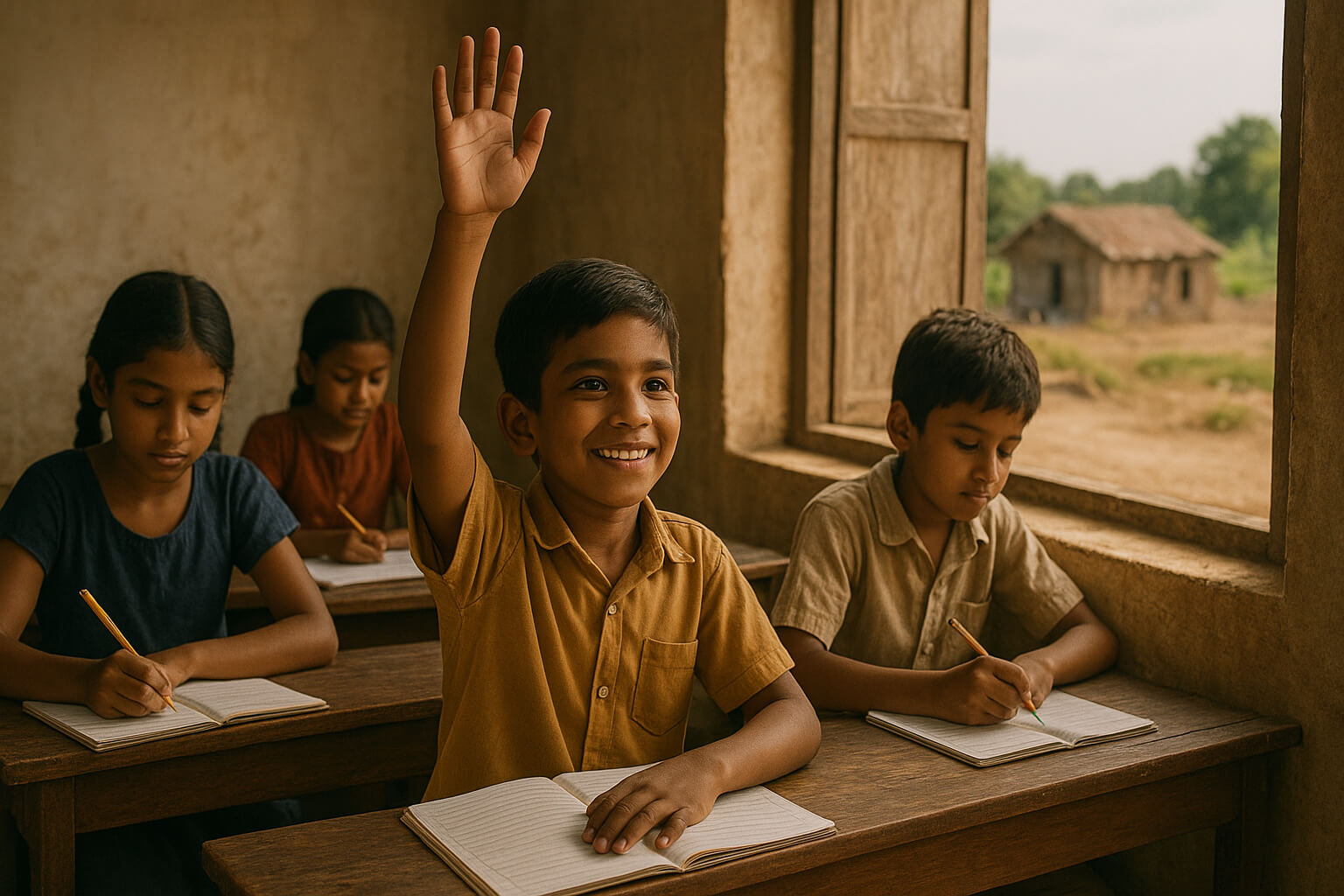The Impact of Education on Poverty Reduction

Education stands as one of the most transformative tools for breaking the cycle of poverty. By equipping individuals with essential knowledge, skills, and opportunities, education offers a powerful mechanism for improving lives and uplifting entire communities. When people gain access to quality education, they gain the ability to build better futures and contribute to long-term social and economic progress. Numerous studies have shown that education is directly linked to poverty alleviation, offering individuals the tools they need to rise above poverty and contribute to their societies in meaningful ways.
Education as a Pathway to Opportunity
- Access to education is one of the most effective ways to improve one’s economic prospects. According to UNESCO, just one additional year of schooling can increase an individual’s income by up to 10%. This increase in earnings has a ripple effect—families are able to support themselves better, invest in health and education, and escape the confines of poverty. Education also fosters long-term growth in local and national economies by building a skilled workforce.
- Read more on UNESCO's report on the impact of education on poverty: UNESCO on Education and Poverty.
- Nonprofit organizations play a critical role in improving access to education worldwide. The blog on educational success shows inspiring stories of students who have overcome adversity through education. These individuals not only transform their own lives but also empower their families and communities, showing the profound impact that education can have. By providing scholarships, school-building programs, and mentorship, these nonprofits help pave the way for brighter futures.
- Read more: Stories of Educational Success
Breaking the Cycle of Poverty
- The true power of education lies in its ability to break the cycle of poverty across generations. Educated children are more likely to pass on the knowledge and values they've received to their own children, perpetuating a cycle of opportunity. By investing in girls’ education, we can further amplify these benefits. According to the World Bank, educating girls is particularly effective in reducing child marriages, improving maternal health, and contributing to stronger family incomes.
- Find more insights on World Bank's data on education: World Bank Education Overview.
- Educating women has been proven to result in fewer children born to young mothers, which directly impacts family well-being and reduces poverty over time. When women have access to education, they are better equipped to make informed decisions for themselves and their families, improving overall health outcomes, economic stability, and social equality.
Beyond Academics: Building Empowerment
- While academic learning forms the core of education, skill-based and vocational training are equally important in providing individuals with the tools they need to secure stable employment. Education does not stop at the classroom door. Nonprofits worldwide have incorporated vocational learning and on-the-job training to ensure individuals are equipped with practical skills that increase their employability and earning potential.
- Programs often integrate community-based mentoring, and these are highlighted in another blog post on the joy of giving. Here, we see how mentorship and community support help individuals break free from poverty. These programs build confidence, provide role models, and create pathways to employment, helping individuals climb out of poverty by gaining hands-on experience in valuable trades and crafts.
- Read more: The Joy of Giving
Community and Global Impact
- The benefits of education extend far beyond individual success; they have a profound impact on communities and nations as a whole. Educated individuals are more likely to become engaged citizens who actively participate in civic life, advocate for their rights, and work to promote social justice. This is crucial for developing sustainable and equitable societies.
- By investing in education, we are not just improving the future of individuals but also uplifting entire communities. As noted in another article on the impact of small donations, even small donations can make a significant difference. For example, a small contribution to an educational fund can provide scholarships, school supplies, or vocational training that may otherwise be out of reach for impoverished individuals.
- Read more: The Impact of Small Donations
Final Thoughts
- Education is not just an individual achievement; it is a societal imperative for long-term development. By supporting educational initiatives—whether through donations, advocacy, or volunteerism—we are taking action to break the cycle of poverty. The benefits of education ripple outwards, helping create a world where opportunity is available to all, regardless of background or circumstance. Supporting these efforts ensures that future generations are equipped with the tools to thrive, contribute to their communities, and create a more just and equitable world.
- By joining in the effort to support educational initiatives, we invest in the future of not just individuals, but communities and nations. Every step taken toward improving education is a step toward eradicating poverty and creating lasting change.
